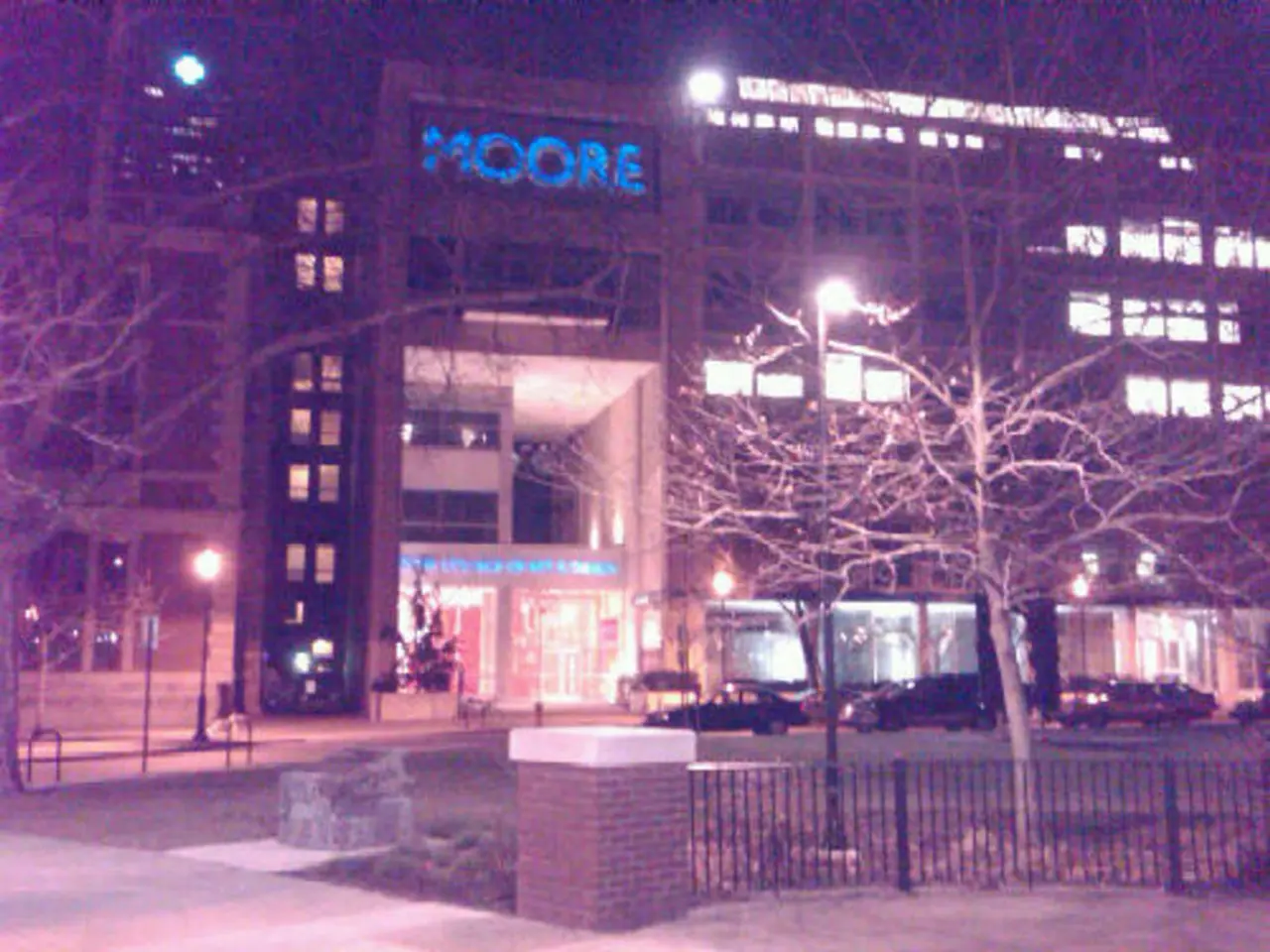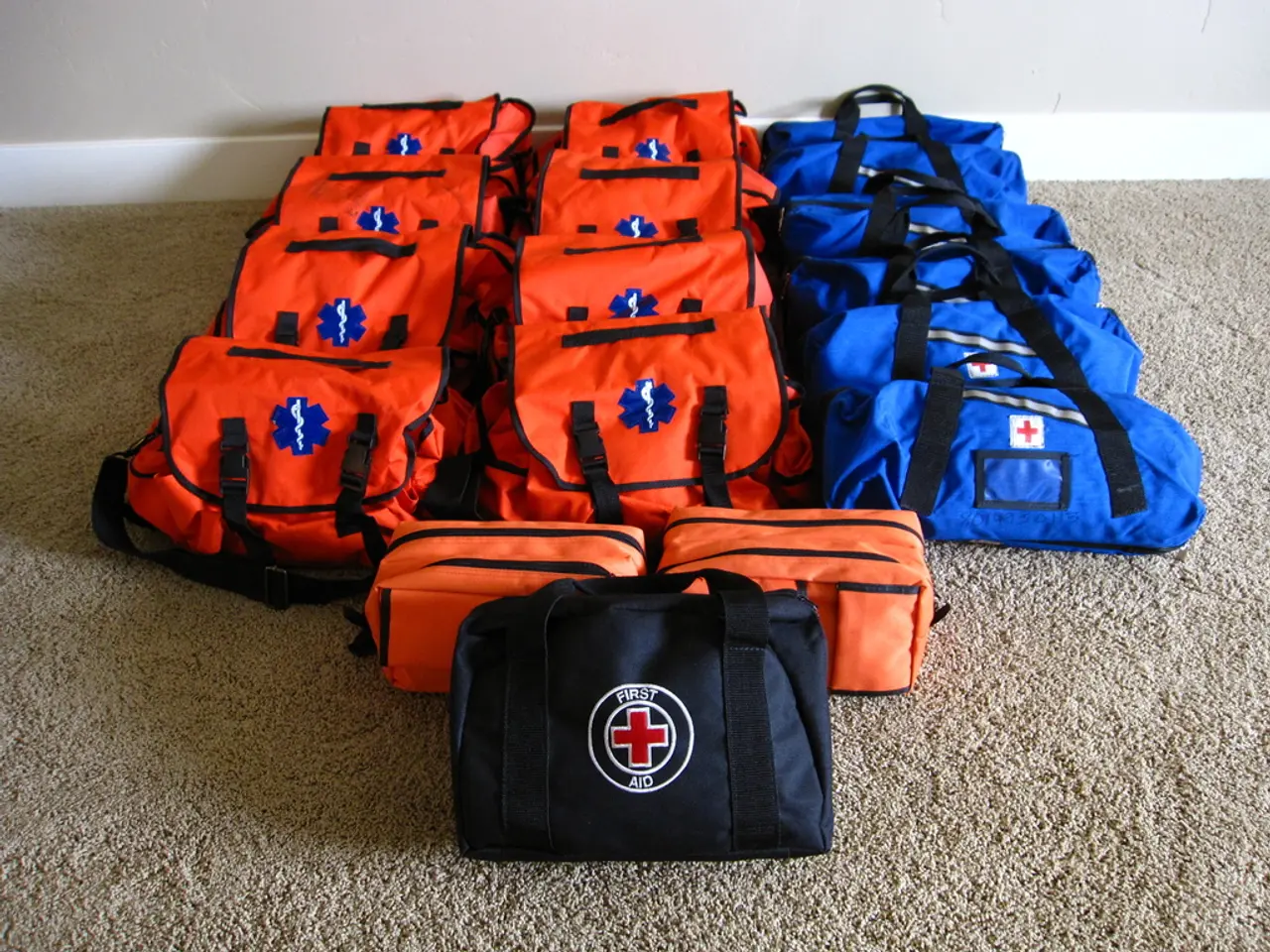"Delighted Visit": Bavarian Health Minister Pays a Call at Uniklinikum Würzburg
University Hospital Würzburg Leads the Way in Disaster Preparedness
The University Hospital Würzburg (UKW) is at the forefront of disaster preparedness, with a particular focus on the growing tasks of civil defense in healthcare. The UKW's Clinic for Anaesthesiology, Intensive Care, Emergency Medicine, and Pain Therapy has developed a tele-intensive care unit (TeleICU) that is now in use at all six Bavarian university hospitals and eight regional hospitals.
This innovative TeleICU connects these hospitals, enabling remote, real-time patient monitoring and specialist input. This capability is crucial during disasters when onsite critical care resources may be overwhelmed or limited. The tele-intensive care vehicle, equipped with high-resolution cameras, document scanners, and various applications, was presented during Minister Gerlach's recent visit.
Prof. Dr. Thomas Wurmb, Senior Physician at the UKW, heads the Section for Emergency and Disaster Medicine and is a member of the Bavarian Expert Council on Health Security. He emphasized the significance of the UKW's role in coordinating and developing regional networks for care in crisis situations. Prof. Dr. Ralf Ingo-Ernestus, Deputy Medical Director of the UKW, further underlined this importance, stating that the UKW's cooperation with a university hospital is crucial for maintaining high-quality intensive care during crises and disasters.
In the elective "Disaster Medicine," medical students learn how to act effectively in disaster situations and their role as future physicians in such scenarios. Students practice quickly gaining an overview of many injured or ill people and immediately initiating life-saving first aid measures.
The Ministry of Health in Bayern convened the Expert Council on Health Security in June 2025. This council exchanges information about the current situation, political developments, and their impact on the healthcare sector, as well as the handling of crisis scenarios.
Bayern is well-prepared for many crisis situations, thanks in part to the UKW's efforts. As Minister Gerlach emphasized, a good preparation for various crisis scenarios is of immense importance for hospitals. The benefits of TeleICU in the care of intensive care patients, especially during disaster scenarios, include improved patient outcomes, enhanced access to critical care expertise, reduction of medical errors, and timely interventions despite resource constraints.
Telehealth, including teletriage, also plays a vital role in disaster scenarios. It allows early assessment of patient severity remotely, prioritizing critical cases, and reducing hospital overcrowding. This facilitates quicker access to treatments and reduces delays that could worsen patient conditions. Telehealth also helps maintain mental health support during emergencies when in-person visits may be impractical.
Additional advantages specific to tele-intensive care include enabling pharmacological decisions remotely (e.g., pain management) and providing continuous specialist oversight without the need for physical physician presence. This capability is crucial during disasters when direct access to ICU doctors may be limited.
Overall, tele-intensive care medicine enhances critical care delivery by expanding specialist reach, improving clinical outcomes, and optimizing resource use—factors especially valuable during major health crises or disasters when healthcare capacities are stretched thin.
References: [1] Tele-intensive Care in Disaster Management: A Systematic Review [2] Telehealth in Disaster Response: A Systematic Review [4] Tele-intensive Care Medicine: A Review of Current Evidence and Future Directions
- Given the University Hospital Würzburg's (UKW) focus on disaster preparedness, especially in the context of medical-conditions, it is likely that they conduct research in the field of science, such as the analysis of Tele-intensive Care in Disaster Management.
- In line with the TeleICU's role in crisis situations, the Ministry's emphasis on telehealth, including teletriage, suggests a strong interest in health-and-wellness initiatives that ensure improved patient outcomes during medical emergencies.




